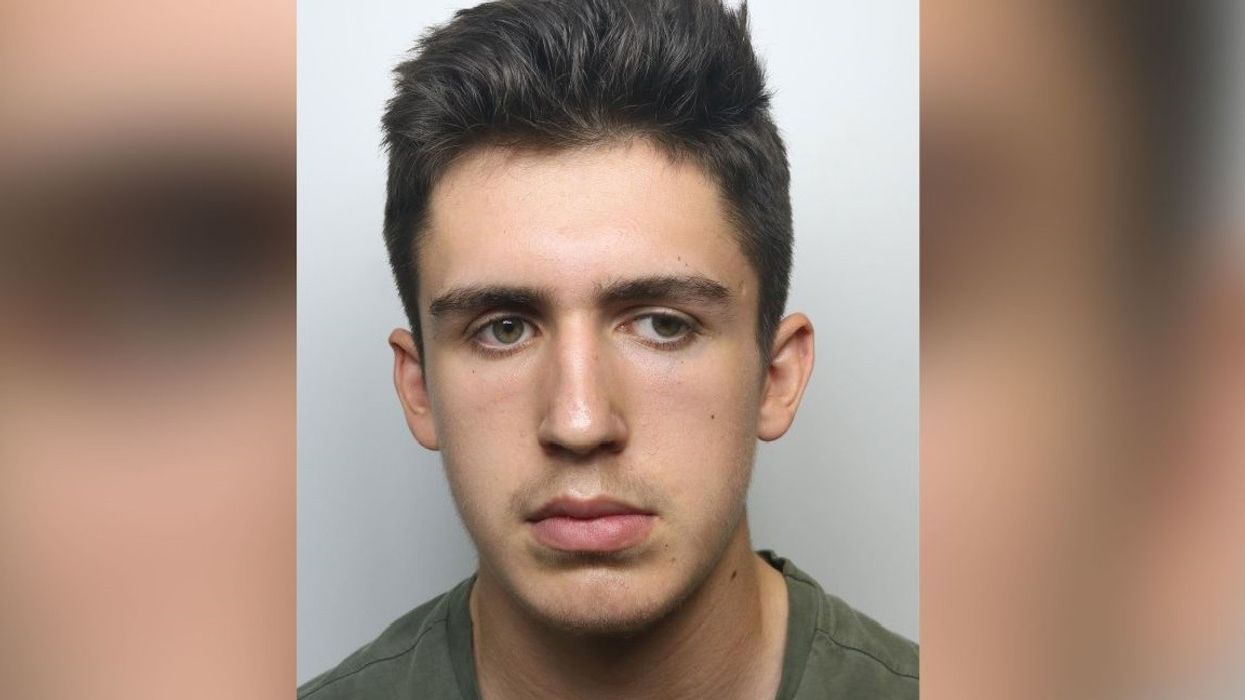A British teenager was on Friday sentenced to more than 11 years in prison for videos promoting racist violence that has been linked to two mass killings in the United States.
Judge Patrick Field called Daniel Harris, 19, "highly dangerous" and a "propagandist for an extremist right-wing ideology".
"You were in close touch with other right-wing extremists online and there can be little doubt that you shared ideas between you," Field told Harris in court.
Harris was found guilty in December of five counts of encouraging terrorism and one count of possession of material for terrorist purposes, for trying to make a gun with a 3D printer.
The judge at Manchester Crown Court in northern England sentenced Harris to 11 and a half years, with a further three years under supervised probation.
The court heard that the teenager from Derbyshire in central England posted videos online for over a year, from the age of 17.
Harris reportedly posted under the name BookAnon on a platform called World Truth Videos.
His videos were shared by self-declared white supremacist Payton Gendron, who has pleaded guilty to murdering 10 black people in the United States.
'Exterminate sub-humans'
Field told Harris "at the very least, the material you produced and published has had some influence upon the young man (Gendron)".
Gendron was 18 when he shot dead his victims in a supermarket in Buffalo, New York in May 2022.
Prosecutors said a link was also found between Harris's videos and Anderson Lee Aldrich, 22, the sole suspect in a shooting in a gay nightclub in the US city of Colorado Springs in November 2022.
The prosecutor said that one of Harris's videos was posted on a "brother site" to one showing a live stream of Aldrich before the attack, which left five people dead.
The court was told one of Harris's videos, titled "How to Achieve Victory", called for "total extermination of sub-humans once and for all".
Another video paid homage to the white supremacist murderer of British MP Jo Cox in 2016.
He also praised the Australian white supremacist who murdered 51 Muslim people in New Zealand mosques in 2019 as a "saint".
Harris was arrested by counter-terrorism police at his home in the town of Glossop last May, two days after the attack in Buffalo.
He had been previously convicted for vandalising a Manchester memorial to George Floyd, whose suffocation by a white police officer in Minneapolis triggered the worldwide "Black Lives Matter" protests.
'Radicalising others'
Harris was placed in a government deradicalisation programme, but Counter-Terrorism Policing detective inspector Chris Brett said he continued to post extremist material.
"Harris was ultimately deemed not to have been groomed, rather his provocative words and inflammatory films were potentially radicalising others," Brett said.
He warned other extremists that police would find them even if they "hide behind usernames, avatars and other technical blockers".
UK intelligence agencies, police and lawmakers have stepped up warnings about right-wing extremism.
Domestic security agents have been investigating teenagers as young as 13 with suspected white supremacist beliefs, MI5 chief Ken McCallum said last year.
Of 29 "late-stage" attack plots disrupted in the four preceding years, 10 were by extreme right-wingers, he said.
The House of Commons Intelligence and Security Committee said in a December report that the online threat was driven by "predominantly young men, many of them still in their teens".
Few belong to organised groups and so are difficult to identify and monitor, the report said, and experts warn that online radicalisation only worsened during pandemic lockdowns.
Harris's lawyer said he was withdrawn from mainstream schooling aged seven and said there had been "quite disgraceful failings" by his family and the local authority.
(AFP)




